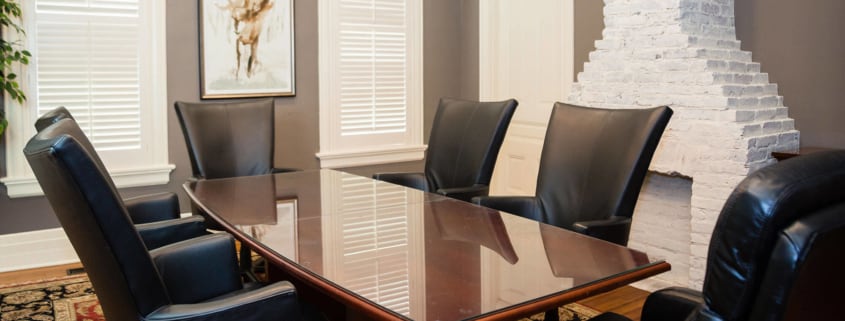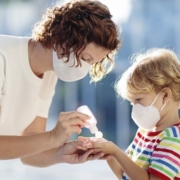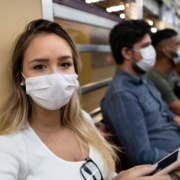Can You Sue if You Get COVID-19 at Work?
Businesses are gradually reopening in a number of states after the COVID-19 lockdowns. After the lockdown, the opening of businesses raises two vital questions: Is it mandatory for employers to ensure that the workplace is sanitary and safe? And will they be held accountable if workers contract coronavirus at the workplace?
The brief answer to the above questions is that while medical care professionals must abide by federal safety guidelines for protection against the virus, the federal law does not make it mandatory for other businesses to do the same.
Also, sick employees seeking compensation usually through worker’s comp must show that they contracted the Covid-19 illness at the workplace, which can be quite challenging to prove.
According to guidelines by the Occupational Safety and Health Administration (OSHA), employers must create a work environment that is “free from recognized hazards that are causing or are likely to cause death or serious physical harm” to workers.
To be able to meet the above standard, OSHA advises businesses to follow the guidelines of the Centers for Disease Control and Prevention (CDC), such as instructing employees to maintain a distance of six feet from colleagues or customers, disinfecting surfaces, taking temperatures, and providing hand sanitizers, face masks, and barriers when necessary.
According to Debbie Berkowitz, Worker Safety and Health Program Director for the National Employment Law Project, OSHA is enforcing guidance issued by the CDC and performing inspections in response to deaths in hospitals, but not otherwise.
Berkowitz reveals that 4,000 COVID-19 related complaints have been filed against businesses that do not provide sanitary workplaces, but OSHA has not issued any fines or citations. She says that OSHA instead is nudging businesses towards the voluntary guidelines.
The Labor Department, which encompasses OSHA, responded to criticism with a statement that OSHA will consult CDC guidelines as well as its own guidance as it assesses if a workplace is “free from recognized hazards.” According to this statement, OSHA will issue a citation and impose a civil monetary penalty on offenders.
Challenging for Employees to Prove Liability
Across the United States, workers or their families can claim monetary damages if employees contract an illness or death. However, in a majority of states, employees who are eligible to make a claim through worker’s compensation (a form of insurance), must follow that path and give up the right to sue, attorneys say.
Further, it can be challenging to win such claims. The employee will have to prove they contracted the virus in the workplace, which is setting the bar very high during a pandemic.
The CEO of the Workers Compensation Research Institute, John Ruser, says that while it is known that certain groups of employees are at a higher risk of contracting the virus, it is still possible that they may catch it outside the workplace. It would be very difficult for the employee to prove that contracting the illness was workplace related.
If several employees at a workplace contract coronavirus, the claim for worker’s compensation could be stronger.
Torrent of Lawsuits
Some employees and their legal teams are approaching the courts and are the pioneers of what could be a significant surge in lawsuits related to the pandemic.
When a Walmart employee in Illinois contracted and died from coronavirus, their family sued the company, alleging that the retailer did not undertake adequate measures to protect its workers from the virus.
The family of the employee, Wando Evans, expresses several concerns, such as Walmart did not take appropriate measures to enforce social distancing protocols, effectively sanitize the store, or equip workers with proper protective equipment.
Meanwhile, in Missouri, a nonprofit workers’ advocacy group brought a lawsuit against Smithfield Foods on behalf of its employees after a COVID-19 outbreak in a plant owned by the company lead to many employees becoming infected.
In the lawsuit, the workers’ group alleges that Smithfield employees were made to work without proper protective gear in close proximity to each other. They were not given the breaks to wash their hands, were discouraged from taking sick leave, and offered bonuses for working when sick.
In addition, the lawsuit alleges that Smithfield had not put in place a plan for testing and contract-tracing employees exposed to the virus.
Businesses Strive to Limit Liability
In anticipation of such lawsuits and a potpourri of state laws, the US Chamber of Commerce, along with many business groups, is asking Congress to determine a federal standard that sets a limit on the liability for enterprises following CDC guidance.
According to Harold Kim, the President of the chamber’s Institute for Legal Reform, they are seeking a concise policy that will offer business-owners the confidence to reopen their enterprises without being under the perennial threat of liability. For instance, businesses that check worker’s temperatures could have a distinct set of criteria for what comprises an illness.
Legal Counsel from an Experienced Personal Injury Lawyer
If you believe you may have a workplace injury claim, it is important to speak with a skilled and knowledgeable Alabama personal injury attorney. The seasoned attorneys at Hedge Copeland, P.C., will consult with you to thoroughly assess your case and advise you of your legal rights and options.
If you end up retaining our services, we will work hard to investigate the evidence and build a strong case for you. We will represent you in court, handle the insurance company, and make sure that you get fair compensation for your losses.
For a no-charge case review, message us online or call (251) 432-8844 today. We accept all personal injury cases on a contingency basis, so you do not pay attorney fees unless we win your case.






